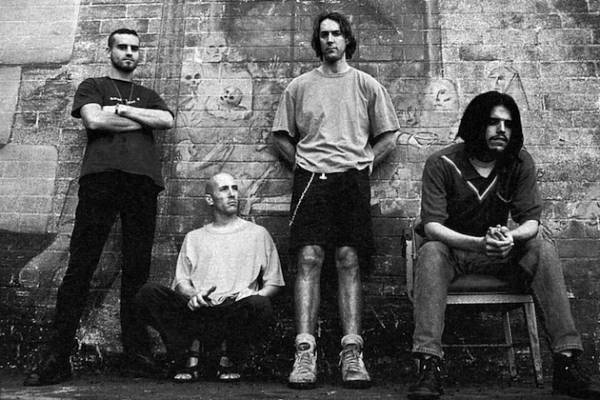Rory Murray, Staff Writer

It’s been over 10 years since the release of 10,000 Days, the fourth studio album by progressive metal band Tool. This album is my personal favorite from the band; the members of the band are not simply four musicians playing their instruments, they act as one when playing. There is no obvious lead guitar, vocals, or rhythm section—it all blends into one sound that feels as though it is alive and breathing. The album builds then falls, climaxing when you least expect it only to disappear and then hit even harder. Tool isn’t my favorite band, but their musicianship is unparalleled; there is no band on the planet that sounds like them. Tool’s sound is one that has evolved from the raw, primal tone of their first two albums released in the 1990’s to a more ambient, psychedelic sound on their later works.
The album is meant to be experienced in its running order, as a complete album, because the songs add dynamic contrast to each other. 10,000 Days contains both metal songs such as “Jambi” and “The Pot,” which stay loud and aggressive throughout, and more passive tracks like “Right in Two” that add balance to the album. That being said, the band did release three singles from the album, “Vicarious,” “The Pot,” and “Jambi,” all of which stand out as exceptional tracks.
The album begins with the seven minute single “Vicarious,” which was nominated for the Grammy for Best Hard Rock Performance at the 49th annual Grammy Awards. The song features a 5/4 timed riff, which is contrary to the 4/4 timing of most modern pop music. “Vicarious” focuses on a recurring riff that builds and changes throughout, while the band is driving heavy, with vocals that seem distant yet powerful. This track may be seven minutes long, but it goes by fast and ends before you even notice.
The next song’s title comes from the old saying “the pot calling the kettle black,” and its lyrics are centered around the hypocrisy of those who do drugs and believe themselves to be above others. “The Pot” starts out with solo vocals, with Justin Chancellor coming in on the bass after the first vocal line and Danny Carey joining on drums shortly after. The first verse builds until the guitar finally comes in with a simple yet heavy riff. This single was the band’s first number one song on the Billboard charts and won the Grammy for Best Hard Rock Performance in 2008.
The third single from the album, “Jambi,” is seven minutes of fast guitar-driven Heavy Metal, which happens to be my second favorite song from the band. Though the song features a heavy guitar riff as its central point, it has an odd 9/8 time signature and subtle vocals than build throughout, making it more complex than your average Metal tune. For the guitar solo on “Jambi,” guitarist Adam Jones uses a talk box effect, which allows him to manipulate the sound of his guitar with his mouth and a separate microphone. Imagine how your voice sounds if you talk into a fan — except instead of a fan it’s 100 decibels of Heavy Metal.
Aside from the singles, 10,000 Days has several other amazing songs, my favorite being “Rosetta Stoned.” Leading into “Rosetta Stoned” is a three minute interlude called “Lost Keys (Blame Hofmann),” in which a doctor is talking to a nurse about a strange patient in their hospital that won’t talk and cannot be identified. The 11 minute track “Rosetta Stoned” is the story of that patient’s encounter with E.T., who revealed to him that he was the chosen one and was meant to deliver a message to all of mankind, but he cannot seem to remember the message. The song features multiple odd time signatures throughout as well as exceptional polyrhythmic drumming from Danny Carey behind an aggressive guitar riff.
The album’s title track is another lengthy piece, coming in at a little over 11 minutes. “10,000 Days” features a droning riff that is powerful, yet not too heavy or aggressive. The song creates an almost dreamlike sound that you can easily lose yourself to. The world around you blurs as the song pulls you in, and soon enough you won’t even realize you are listening to it; you are living it.
10,000 Days was a major commercial success for Tool. The album debuted at number one on the Billboard charts and sold 534,000 copies in just its first week. The album received some mixed critical reviews for the interludes in between some of their songs; critics felt they were random and didn’t provide the traditional Tool sound. I think they add contrast to the album—the softness of the interludes makes the following track sound even heavier in comparison. Ultimately, this album is an amazing composition, featuring musical complexity that most bands would never even dream of. I would highly recommend 10,000 Days along with Tool’s entire discography.




Leave a Reply